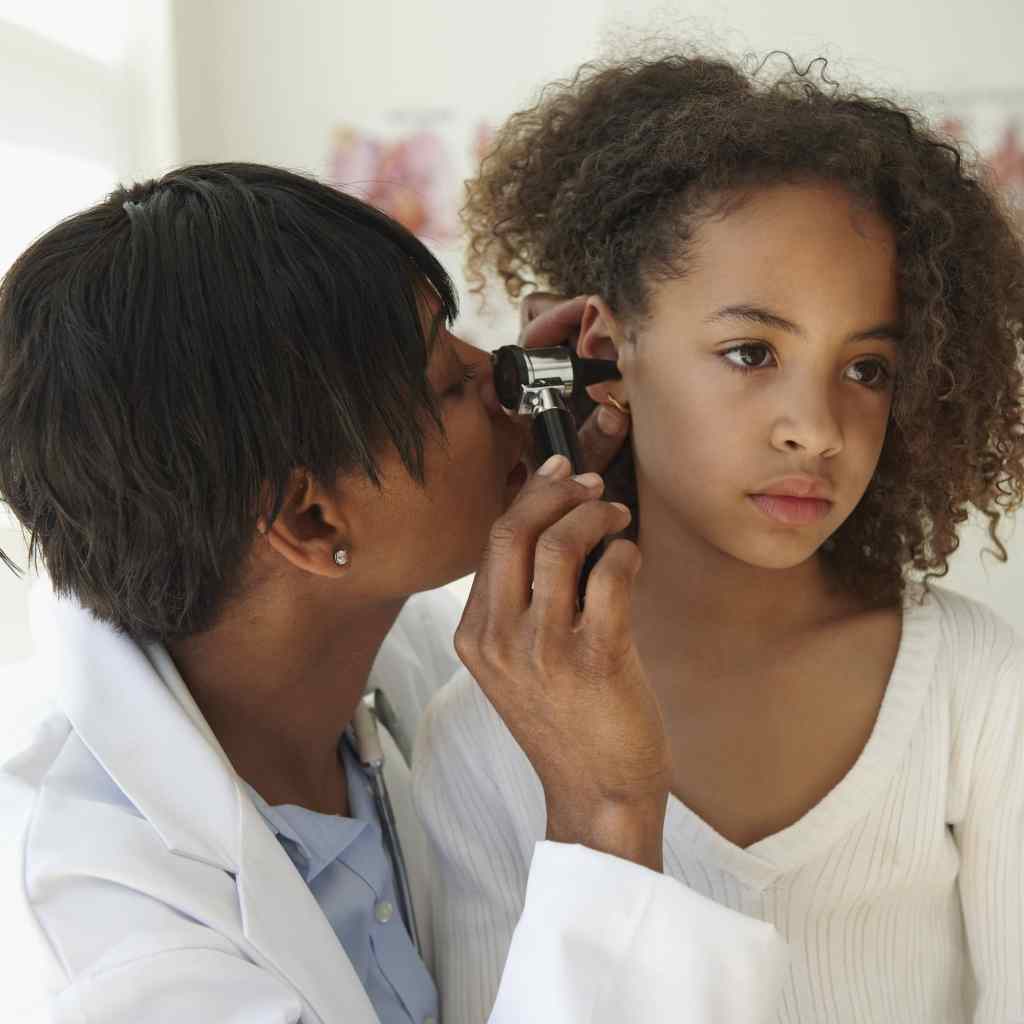There are countless things I worry about when it comes to my 8-year-old daughter – her anxiety, her general messiness, her anger-fuelled meltdowns – but her hearing has never entered the list. This is, after all, a girl who’s regularly yelled at me for swearing while she’s in a room 30 feet away and wearing headphones. So when I got a note home from school that she’d failed her hearing test and would need to be retested, I didn’t think twice before throwing it in the recycling bin.
A few weeks later, a larger envelope came home. Her retest had also been a bust, and the school asked me to take her to an ENT to have her hearing tested professionally. Included was a form the doctor would need to sign to ensure that her hearing was fine. My main reaction: mild annoyance.
Of course, I made the appointment, sure that it would just be another in a long line of tedious, frustrating, and emotionally and financially draining activities my kids have required of me. See also: taking my daughter for X-rays after she was sure she broke her ankle at recess (she did not) and spending almost a year trying to convince my son that pooping on the potty was way more fun than doing it in his pants (he eventually agreed).
I explained to the doctor that we were there for what I was sure was an unnecessary test – in almost nine years, I’d seen no sign of any hearing issues, and her teachers, past and present, said the same – and after a quick examination, he said he saw no structural issues that would be causing hearing loss. He sent us to the audiologist for a hearing test, and I could tell the tech was pensive afterwards. Sure enough, the doctor returned to tell us the results were commiserate with a child who requires hearing aids. I was completely floored.
We left with the phone number of a paediatric audiologist he said we should see for additional tests. I cried on the phone to my husband while our daughter was in the restroom. She seemed wholly unfazed. She requested we listen to Lizzo on the way home. I put “Truth Hurts” on loud, then asked her questions in a hushed voice while it played. She easily replied to them all. WTF was going on?
The next day, after processing the whole experience, I spent a half hour on the phone with the school nurse who had administered the school hearing test, then another half hour on the phone with the audiologist who had completed the doctor’s test, and another half hour talking to the pediatric audiologist. My intuition and eight-plus years of parenting experience was telling me again and again that this child did not have a hearing problem, but why were the tests coming up with a different result?
The only thing I could come up with was that a new child had entered her grade and classroom at the beginning of the school year, and he has serious hearing loss. He wears two hearing aids and has his own classroom aide, and their teacher uses a looped microphone so he can hear him. Could my daughter be witnessing this and then faking a hearing problem for attention? Or had her anxiety caused her to fixate on his situation and somehow make it her own? Did any of these professionals agree that could be the case?
The paediatric audiologist was a lifesaver. She talked me through the scenario, telling me that yes, children with perfect hearing often fail tests for a multitude of reasons, but most do not do so intentionally. Anxiety, illness, or testing error could all be at play. She assured me that she would work with her to make her feel comfortable and ensure that the final results were accurate. Still, I didn’t sleep for the few days leading up to her appointment.
That morning, my husband and a very nervous me took our daughter in to meet the pediatric audiologist. After a few false starts, she was able to make my daughter feel relaxed enough to get the results we all wanted to see: our child does in fact have excellent hearing.
The experience was an eye-opener to me in many ways. It taught me how thorough our school system is when trying to detect children’s issues, a good thing except when your child is being continually misdiagnosed. It taught me that my daughter’s anxiety is not something she can always control and that it manifests itself in ways that feel very real to her, even when they’re not based in actuality. And it taught me that my intuition, a parent’s intuition, is something I should always trust. Even when doctors disagree.

